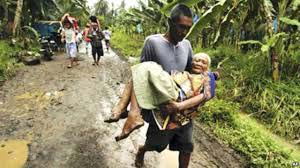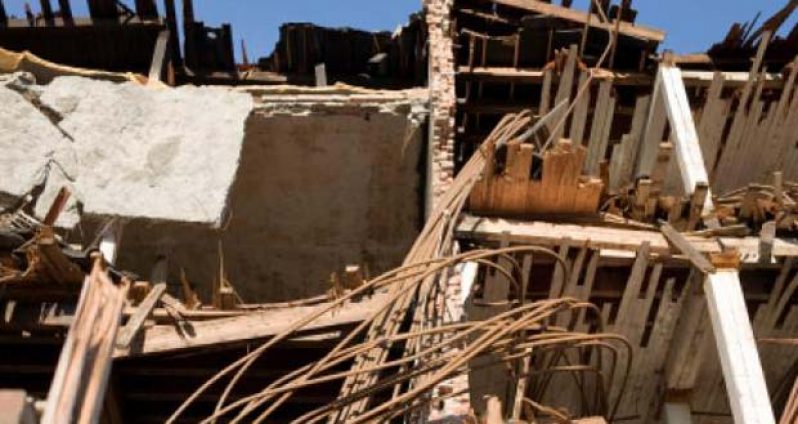NATURAL Disasters are occurrences that can happen at any time, in any place. Being able to rebound quickly in the face of adversity is what makes a society resilient. Over the years we have seen an increase in the number of natural disasters not to mention the increasing intensity of these phenomena. With climate change upon us, the unpredictability of weather patterns demands that we be alert and plan for the uncertainties we now face.
 The world is ageing. RecogniSing this fact, this year the International Day for Disaster Risk Reductionwill highlight the need for a more inclusive approach for older people in disaster risk reduction and recognise the critical role they can play in resilience-building through their experience and knowledge. Older people now have to adapt to new changing weather patterns which are affecting their ability to provide for their families and communities as well as affecting their very lives. At the same time, older people are using their experience to confront climate change.
The world is ageing. RecogniSing this fact, this year the International Day for Disaster Risk Reductionwill highlight the need for a more inclusive approach for older people in disaster risk reduction and recognise the critical role they can play in resilience-building through their experience and knowledge. Older people now have to adapt to new changing weather patterns which are affecting their ability to provide for their families and communities as well as affecting their very lives. At the same time, older people are using their experience to confront climate change.
As we observe International Day for Disaster Risk Reduction, 2014 under the theme “Resilience is for Life”we are called upon to pay closer attention to our elderly. They are sometimes vulnerable because they may live alone, suffer chronic diseases, disabilities or conditions that require extra assistance to leave an unsafe area and recover from a natural disaster event. For these reasons, emergency managers need to recognise that the frail elderly are a special-needs population and develop strategies to meet their needs.
Disasters come in many forms, including severe weather-related events, earthquakes, large-scale attacks on civilian populations, technological catastrophes, influenza pandemics, even terrorist attacks.
According to Vincent Campbell, PhD, Associate Director for Science in the Division of Human Development and Disability in CDC’s National Center on Birth Defects and Developmental Disabilities,  “Older adults are definitely a population with needs that must be addressed”. In New Orleans, people aged 60 and older comprised 15 percent of the population prior to Hurricane Katrina. However, more than 70 percent of those who died as a result of the hurricane were elderly.
“Older adults are definitely a population with needs that must be addressed”. In New Orleans, people aged 60 and older comprised 15 percent of the population prior to Hurricane Katrina. However, more than 70 percent of those who died as a result of the hurricane were elderly.
Many Elderly persons are left behind because of their inability to move quickly enough and may be left behind by their care givers. Also, because of their age and sentimental value some refuse to leave their homes and memoirs behind in disasters causing them to stay in their homes; some even believe that there are others who deserve to be tended to more than they do and perish. Another story, facing our elderly, is that of older adults with chronic illnesses, such as diabetes or breathing disorders, who suffer because they are unable to take their medications or lack access to the technologies that help them function independently during these times.
Older adults also face difficulty to rebuild their lives and homes because of their age and varying abilities. It is not easy or in some instances even possible for them to rebuild their lives after a disaster. Many of them are unable to work and provide for themselves; this situation can cause many of them to become despondent and suffer from depression and other ailments as a result of the sudden life change.
Butthe situation is not all daunting, not all older adults are more vulnerable to ill effects from a disaster than younger people. In many cases, older adults have the life experience, wisdom, and mental resilience to survive, help others, and reassure people who are frightened or depressed by the events. Sometimes you will hear an older adult on the news say, “Well, we lost everything, but at least the family is okay. It could have been worse.” Nonetheless, many older adults who are frail or have special needs require assistance to survive and recover from a disaster.
Share your ideas and questions by sending letters to: “Our Earth, Our Environment”, C/O EIT Division, Environmental Protection Agency, Ganges Street, Sophia, GEORGETOWN, or email us at: eit.epaguyana@gmail.com




.png)









